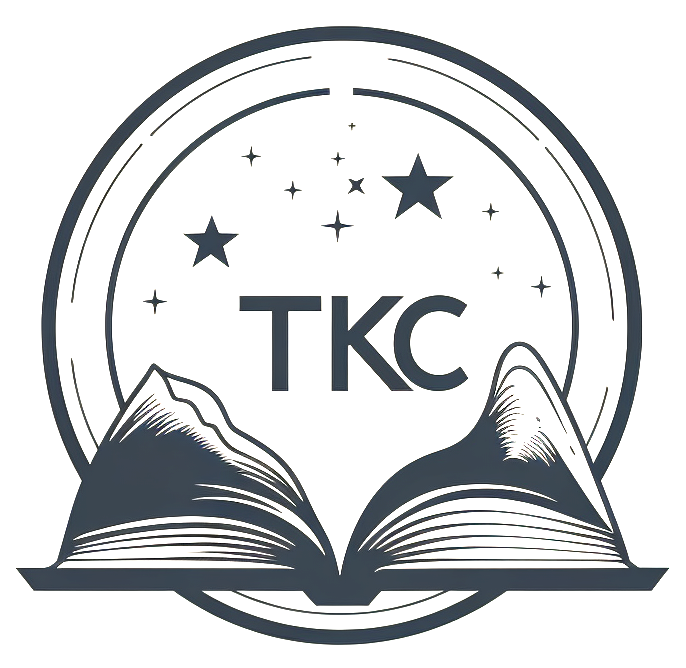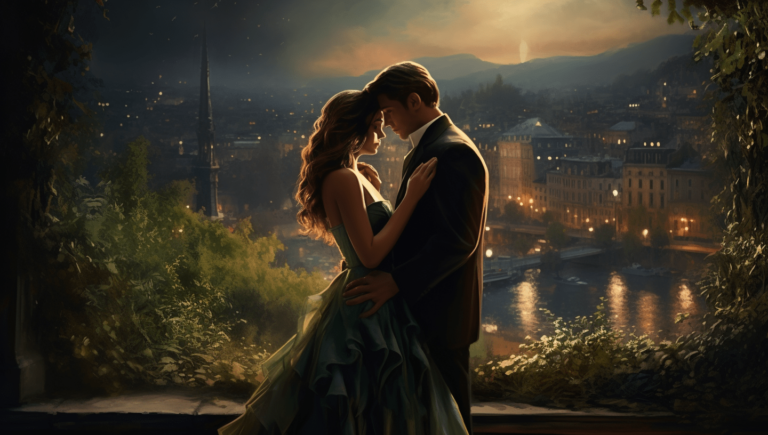What is it that makes a book stand the test of time? As someone who loves to read, this is something I’ve often pondered while losing myself in both classics and contemporary works. Throughout history, more than 100 million books have been published. Yet only a few have ever earned the distinction as “one of the best books of all time”.
There’s something…transformative when you just sit there after finishing an incredible book, letting the whole experience wash over you. And you are not alone when feeling that.
The books on this list aren’t just good, they have each left their own mark on literature and society in general. From Jane Austen’s razor-sharp commentary that still feels relevant 200 years later. To George Orwell’s dystopian warnings that seem way too eerie in today’s society. The books in this guide transcend eras, speak universal truths, and represent some of the pinnacles in storytelling we have seen so far.
Timeless Literary Classics That Shaped Modern Literature
There is a feeling that comes with finishing an incredible book where you just sit there, completely transformed. Some of these classics have found a way to transcend eras and hold a special place for their ability to influence modern writing and storytelling itself. That is what makes each of them one of the best books of all time.
Best Books of All Time #1 – Pride and Prejudice by Jane Austen
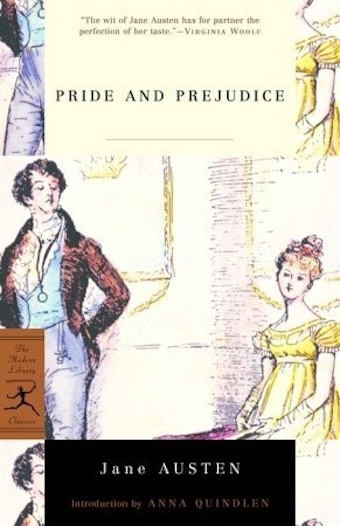
Let’s start with Jane Austen’s “Pride and Prejudice”, a book that literally changed how we write characters.
When I first read this book, it took me a while to understand why it resonated with me so deeply until I reflected on the complexity of Elizabeth Bennet’s character. Here was a female protagonist who wasn’t just witty and independent, but deeply flawed and real. What Austen did was revolutionary at this point in time. She created characters who actually grew and changed in believable ways.
Want to know what’s also pretty cool? Modern romance novels are still following Austen’s blueprint. That “enemies become lovers” trope that a lot of people are obsessed with? Yep, Lizzy and Mr. Darcy did it first (and arguably best).
So, every time you read a contemporary romance novel with some sharp social commentary or complex family dynamics, just remember that Jane Austen did it first.
Best Books of All Time #2 – 1984 by George Orwell
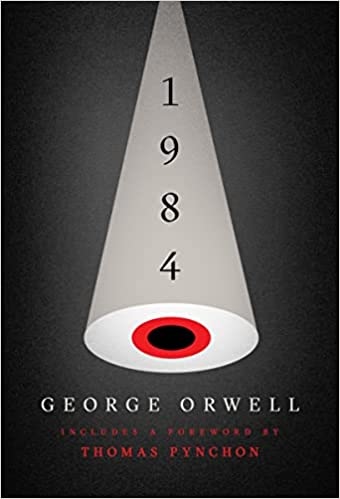
Speaking of relevance, wow does ”1984” hit different these days.
When you think about how Orwell basically predicted the current struggles we face with privacy and information control, it can feel a little surreal. It can almost be hard not to scroll through social media and immediately think about the concept of “doublethink”. Not that Orwell could’ve ever imagined we would have something like Twitter.
What really makes this one of the best books of all time is more than just the warnings about surveillance. It’s how it showed us that dystopian fiction could be both terrifying and deeply literary.
Without 1984, there’s a good chance we would never have gotten The Handmaid’s Tale or The Hunger Games. Ask yourself, could you imagine a world where these were never written? I didn’t think so.
Best Books of All Time #3 – To Kill a Mockingbird by Harper Lee
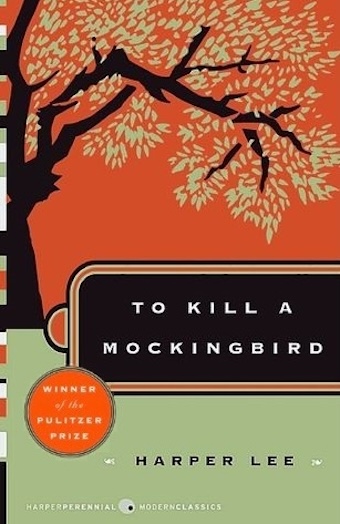
What Harper Lee was able to do with her masterpiece “To Kill a Mockingbird” is truly incredible. She was able to show us social justice through the eyes of a child.
Not only did Scout’s voice revolutionize how we tell coming-of-age stories, it was able to shed more light on the complex issues of racism and injustice in a way that everyone could understand. No matter how old they were.
I especially love how Lee was able to tackle these heavy themes while keeping the tone almost nostalgic. And somewhat beautiful. Her balance of innocence with harsh reality created the template for YA literature, one of the most popular fiction genres.
Lastly, if you’re looking for a good book with that “moral compass” character we often see in modern literature, look no further than Atticus Finch. He basically created the template for this.
Best Books of All Time #4 – The Great Gatsby by F. Scott Fitzgerald
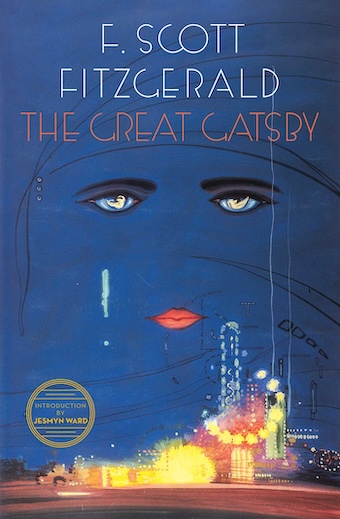
I have to say that of all the classics in this list, “The Great Gatsby” is probably my favorite. Who knows, maybe I’ve just fallen for the allure and mystique of Jay Gatsby. But all I can say is it hits differently each time I read it at different stages in my life.
The way Fitzgerald explores the American Dream feels very poignant, especially in today’s society where much can feel out of reach. His use of symbols (ie. that green light, the eyes of Dr. T.J. Eckleburg) changed how many authors approach and use symbolism in fiction.
It really is incredible when you think of how much meaning Fitzgerald was able to pack into such a slim novel. It’s like each word and sentence was carefully chosen for maximum impact, and it’s very likely they were. The beautiful prose, along with the devastating critique of wealth and excess, is the kind of magic that many modern authors are still trying to capture today.
Sometimes I’ll spot a Gatsby reference in a modern novel and just smile. That kind of influence is truly what makes it one of the best books of all time.
Best Books of All Time #5 – One Hundred Years of Solitude by Gabriel García Márquez
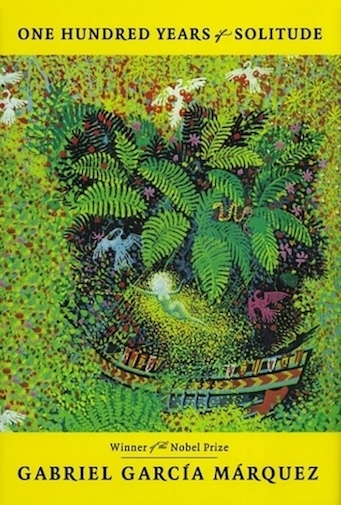
The first time I read “One Hundred Years of Solitude” I felt like I had to keep a notebook just to keep track of all the family trees. All those Aurelianos and José Arcadios’ made things a little complicated to say the least.
Yet, that complexity is exactly what makes this novel so groundbreaking.
Gabriel García Márquez was able to create an entire universe where the impossible felt completely natural. Blending magical elements with everyday life was really something. Who would’ve thought that a character ascending to heaven while doing laundry could work as perfectly as it did.
You can see how Márquez’s approach to magical realism has influenced many modern authors such as Salma Rushdie and Isabel Allende’s. Plus, his ability to weave Colombian cultural myths into the fabric of the story is really something special.
Best Books of All Time #6 – The Catcher in the Rye by J.D. Salinger
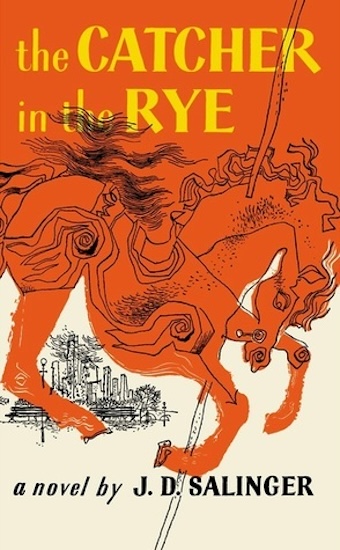
“The Catcher in the Rye” is one of those books that feels so authentic it almost hurts.
The way Salinger wrote Holden Caulfield can make everyone feel like they are not alone with their thoughts and feelings. Even though the book was written decades ago, the internal complexities are still as relevant as ever. We can all understand what it feels like to be at conflict with ourselves.
Salinger was able to capture that universal feeling of teenage angst, loneliness, and confusion through Holden’s voice. From the way Holden jumps between topics, obsesses with “phonies”, and his hidden vulnerability, all of it feels so real and sometimes a little uncomfortable.
A lot of modern Young Adult fiction owes a massive debt to Salinger. Without Holden, characters like Charlie from The Perks of Being a Wallflower or Miles from Looking for Alaska might never have come to be.
#7 – Beloved by Toni Morrison
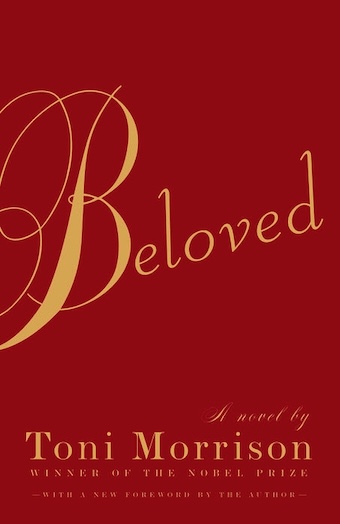
When I look at “Beloved”, I see a book that is entirely something else.
The emotional impact can be VERY intense, it was hard for me to not put it down a few times when I first read it. Morrison is able to make readers feel the weight of generational trauma through her commentary on slavery.
The way Morrison weaves between past and present, reality and memory, the physical and supernatural, is distinctly unique. Her non-linear storytelling shows us that some stories are too complex for traditional narrative structures.
If you look closely, you can see Morrison’s influence in how authors approach difficult historical subjects. Books like The Nickel Boys or Pachinko follow her lead with how they address generational trauma through a personal lens. Plus, the non-linear storytelling has become a powerful tool for helping other authors deal with complex and multilayered narratives.
#8 – Anna Karenina by Leo Tolstoy
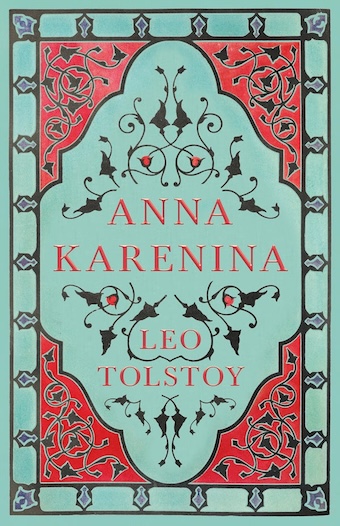
Just like the novel itself, it’s easy to have a complicated relationship with “Anna Karenina”. With every new read, it’s easy to discover something new (a trait that many of these books share).
Tolstoy’s characters feel so real that they feel like they could be neighbors or people you encounter in everyday life. The book just feels so…modern, especially with its treatment of marriage and society.
The way Tolstoy explores Anna’s position as a woman in society, the complexities of her relationships, and the social pressures she faces, you could think she was around today. The parallel storylines between Anna and Levin were revolutionary and still influence the way authors today structure their novels.
Almost every character-driven novel that tackles social issues, whether a moral complexity or a window into social issues, can be traced back to Anna Karenina.
#9 – The Picture of Dorian Gray by Oscar Wilde
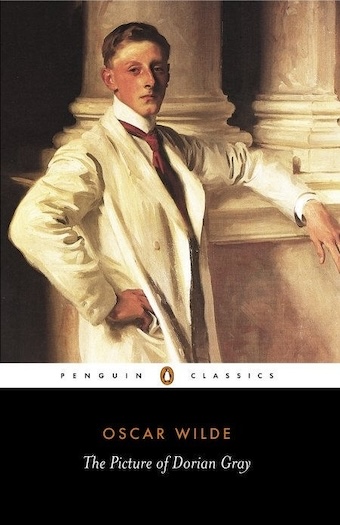
The Picture of Dorian Gray is one of those novels that perfectly captures our modern obsession with youth and appearance. Oscar Wilde was very much ahead of his time.
Wilde was able to blend the supernatural with psychological horror which had a big influence on modern gothic fiction. Something that many authors, such as Stephen King, still follow today. The whole concept of an aging portrait in the attic is something so unique it’s genius.
Something that really sticks out to me is how Wilde weaves in his own personal ideas of art and beauty throughout the story. Lord Henry’s witty and provocative statements about aestheticism are just as shocking today as they were in Victorian England. Similar types of themes can also be seen in modern works such as Donna Tartt’s The Secret History and Patrick Süskind’s Perfume.
You can also look at how this book puts a lens up to narcissism which can feel especially relevant today in the age of social media. It is so common to find new parallels that can be traced across different cultural trends with each reread.
What Wilde was able to do is give us a framework for exploring how the values of society can corrupt the morals of an individual.
#10 – Wuthering Heights by Emily Brontë
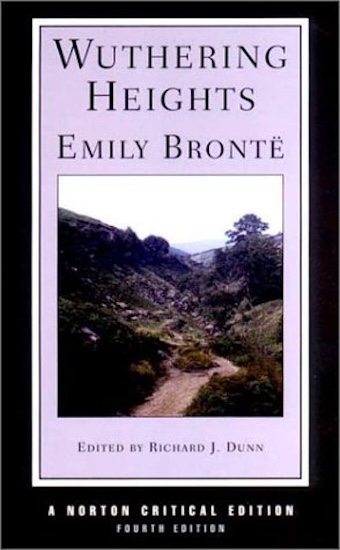
What Emily Brontë was able to do with ”Wuthering Heights” completely shattered the rules of storytelling as we knew it.
She created an incredibly complex narrative structure that feels both transcendent and modern. Across many different time periods.
The first time I read this book I was completely confused, but the more I thought about it and reflected, the more I could see the overall brilliance. Until this book, few stories would unfold through multiple narrators and time periods. Wuthering Heights changed all that.
The passion between Heathcliff and Cathy redefined how love was written in literature. It wasn’t your typical romance, it was raw, destructive, and unforgettable. Since then, we have seen more authors explore the darker side of love and obsession from Gone Girl to Atonement.
The way Brontë was able to balance critical themes such as revenge and passion while maintaining an incredibly atmospheric tone was quite revolutionary.
#11 – Great Expectations by Charles Dickens
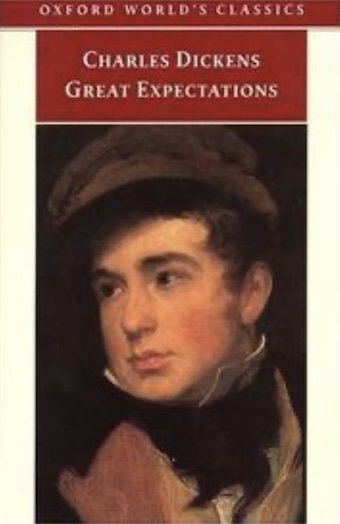
”Great Expectations” can 100% be considered a masterclass in storytelling which makes it one of the best books of all time. Dickens just had a way with writing compelling characters that could live forever.
Every time I look at this book, it’s easy to discover new layers in how Dickens developed Pip’s character. He was able to make this specific Victorian boy’s story feel universal. We could all sympathize with that feeling of being embarrassed by our upbringing or to want something we can’t have.
Dickens was able to juggle multiple storylines and characters while keeping everything connected. Miss Havisham, Estella, Magwitch. All of these threads weave together perfectly and the complexity of the plot is mind-boggling.
You will still find some of these relevant today. Social mobility, class consciousness, personal growth, all of these issues will feel universal to many readers.
#12 – Fahrenheit 451 by Ray Bradbury
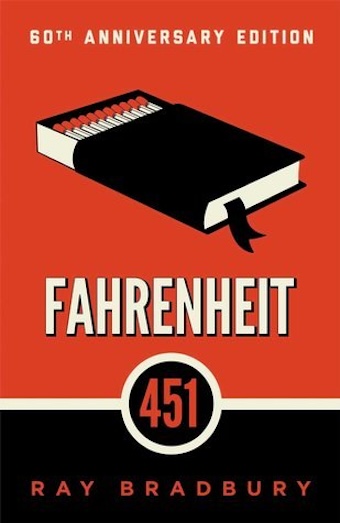
”Fahrenheit 451” is another one of those books that felt ahead of its time.
Bradbury’s warned about the death of the reading culture and the rise of mindless entertainment. Themes that could be seen as a direct parallel to our current age of mindless scrolling and information overload. Was he able to predict the future about our addiction to screens and the negative impacts of constant stimulation? We will never know.
One of the most powerful (and relevant) themes Bradbury gave us goes beyond its warnings of censorship. It’s the seductive nature of giving up our intellectual freedom. One particular scene where Montag’s wife can’t imagine life without her “family” on the wall screens is particularly poignant.
So much of modern dystopian literature draws a lot from Fahrenheit 451. You can see some of the influence in works like The Hunger Games and Feed. Bradbury showed us how science fiction can be used to critique present-day society. Something that is a mainstay in contemporary literature.
#13 – The Canterbury Tales by Geoffrey Chaucer
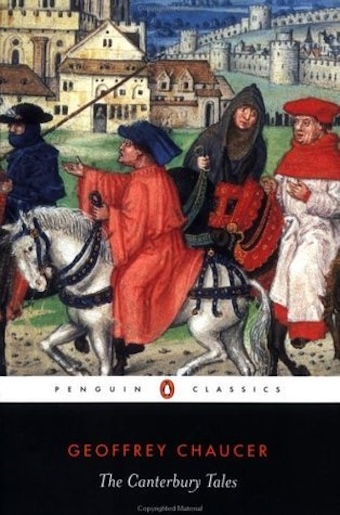
When you look at ”The Canterbury Tales”, it can seem like the medieval version of a social media feed.
Each character shares their story, throws shade at others, tries to “one-up” each other, and so on. But Chaucer was just capturing human nature as he saw it. And in some ways, that hasn’t really changed too much when you think about it.
You also can’t overstate the genius behind how Chaucer framed the narrative structure. By creating this diverse group of pilgrims, each with their own distinct voice and story, he showed us how it’s possible to write multiple perspectives authentically.
You can see how modern works like David Mitchell’s Cloud Atlas or Jennifer Egan’s A Visit from the Goon Squad might have been influenced by this. One thing that really stands out is how Chaucer calls out church corruption and the hypocrisy in society…in the 1400’s. That was an INCREDIBLY dangerous thing to do 600 years ago. I think this might be why The Canterbury Tales is still considered one of the best books of all time.
The amazing thing about these classics is how they continue to shape modern literature. They’re not just historical pieces from a certain point in time – they are living works that continue to teach us new things about storytelling. They are works that will show you something new each time you return to them and something that speaks to our current times in ways the authors could never have imagined. That is what truly makes them timeless and rightfully some of the best books of all time.
Revolutionary Science Fiction and Fantasy Masterpieces
These book categories will forever hold a soft spot in my heart. I’ve spent countless nights lost in these incredible worlds because they are more than just stories.
Why do so many people (especially children) gravitate towards science fiction and fantasy? Because they allow us to imagine a version of ourselves somewhere entirely different. The character dynamics are similar, the motivations are the same, and the relationships are just as powerful. Yet, each one is able to bring in something new and special to transform the ordinary into extraordinary.
That’s why I can confidently say each of these are some of the best books of all time. There is no doubt in my mind.
Best Books of All Time #14 – Dune by Frank Herbert
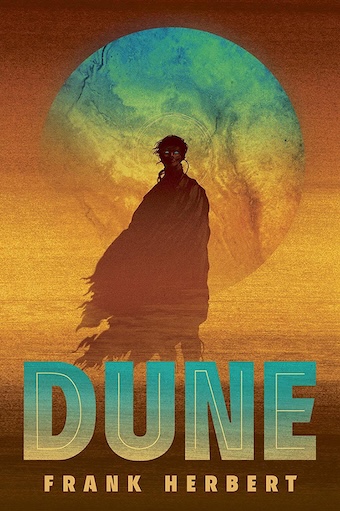
Lisan Al-Gaib!! Lisan Al-Gaib!! LISAN AL-GAIB!!
I found “Dune” later than most people but, oh boy, did it live up to the hype. What Frank Herbert was able to do laid so much groundwork for the incredible science fiction we see today.
The way he wove in environmental concerns with an epic space opera was truly incredible. Not to mention the level of detail in how the Fremen conserve water and their symbiotic relationship with the sandworms. Pure genius.
Herbert created an entire functioning galactic ecosystem, not just a story. Every aspect of Arrakis, from the spice cycle to the stillsuits, feels scientifically plausible. And don’t forget the overarching political intrigue that gives the whole story life. Across all the sci-fi I have read, few come close to matching Dune’s ecological world-building.Dune didn’t just pave the way for the likes of Star Wars, it laid the groundwork for modern works like N.K. Jemisin’s Broken Earth Trilogy. A series where environmental themes take center stage.
Best Books of All Time #15 – The Lord of the Rings by J.R.R. Tolkien
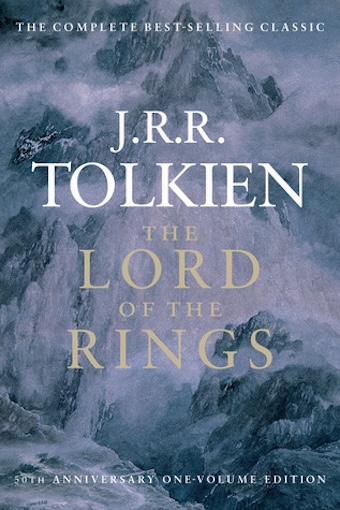
I bet you were wondering when this would show up. Did you know that “The Lord of the Rings” STILL sells about 250,000 new copies each year even though it was published in 1954? Think about that for a second.
Look, I know calling Tolkien influential is like saying water is wet, but there’s a reason for that. As someone who grew up on fantasy, it’s easy to see how much inspiration different authors got from this series.
Tolkien didn’t just create a new world, but entire languages, histories, and mythologies. It was more than just world-building, it was world-breathing. That’s what has helped these books remain this influential so many years later.
It kills me how some people will dismiss Lord of the Rings as “just another fantasy series”. I’m sorry but they’re wrong. Without LOTR, many of the modern fantasy works people love today would never have existed. It introduced us to detailed magic systems and fully developed fantasy races, all with a medieval undertone.
Middle Earth is such an expansive and incredible world, it’s easy to get lost in the history and lore. Which so many people have, including myself.
Best Books of All Time #16 – Foundation by Isaac Asimov
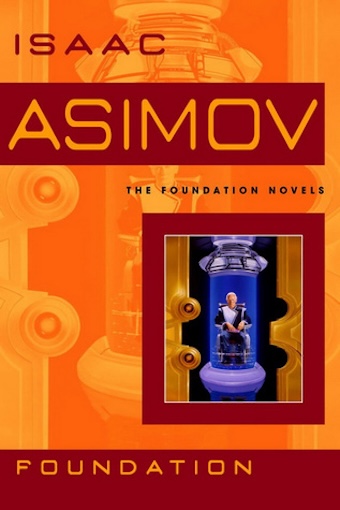
“Foundation” is one of those books that can easily go over your head the first time you read it. It did for me.
Asimov’s concept of psychohistory seemed so far-fetched that it was easy to discount it as a general fantasy trope. But the more I thought about it, the more I could see the parallels, especially in today’s society.
Businesses everywhere are using predictive analytics and big data to almost “predict the future”. So maybe Isaac was just a secret time traveler or another one of those authors who could see the future?
I guarantee you will have a hard time finding a novel that spans as much time as Foundation did. The way it approaches the rise and fall of human civilizations across many planets and galaxies was revolutionary. It influenced other works such as Dune (you heard that right) and modern sci-fi like The Expanse. Both are examples of other works of humanity spreading across the stars.
Best Books of All Time #17 – A Game of Thrones (A Song of Ice and Fire series) by George R.R. Martin
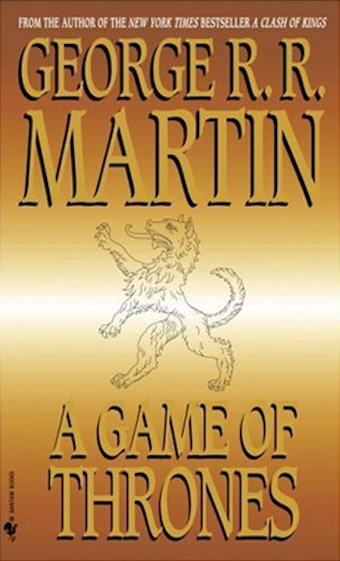
“A Game of Thrones” and the ASOIAF series are some of my favorite books of all time. It’s not even close. I am THAT person who has read every single fan theory, analyzed essays, and bombarded friends with my own ideas.
One thing you should know about George R.R. Martin before jumping into this series. He is allergic to happy endings. The second you think you know what’s going to happen, everything changes. In my personal opinion, book 3 (A Storm of Swords) is the greatest fantasy novel ever written for these reasons.
Martin took everything we thought we knew about fantasy and turned it on its head. The way he handles character development and moral ambiguity is just chef’s kiss. There are few truly good or truly evil characters, just shades of gray everywhere you turn. I would say Dune is a close comparable to this series, and likely an inspiration for Martin who is an avid sci-fi lover.
The attention to detail in world-building is unparalleled. And the way seemingly minor details from one book become major plot points later is just masterful storytelling. This series could legitimately be the greatest fantasy epic ever written…if it gets finished.
The wait for The Winds of Winter is killing me. I pray to R’hllor and The Seven that we get it one day, as well as A Dawn of Spring. Winter must end!
Best Books of All Time #18 – The Eye of The World (The Wheel of Time series) by Robert Jordan
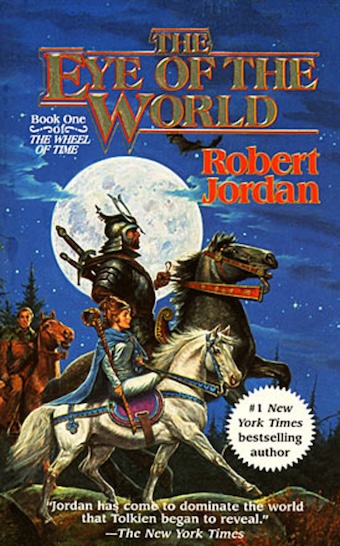
If you want to talk about ambitious storytelling, look no further than “The Wheel of Time” by Robert Jordan.
I was first told I needed to read this series years ago when I was kid. I just thought “Okay, this will be just another fantasy series” but oh boy was I wrong. Fourteen books later, I was completely blown away by the sheer scope of what Jordan accomplished. It took some time (and a lot of breaks) but it was definitely worth it.
Jordan’s use of multiple POV characters (within the same chapters nonetheless) were quite the change of pace. Before The Wheel of Time, most fantasy series only stuck with a few core perspectives. But Jordan decided to go his own way, even if it was a little confusing from time to time.
The entire magic system revolves around the “One Power” split into the female half (saidar) and the male half (saidin). The entire concept of gender-dynamics within magic was truly unique. You can definitely see how authors like Brandon Sanderson and Christopher Paolini got their inspiration from TWOT.
Best Books of All Time #19 – Neuromancer by William Gibson
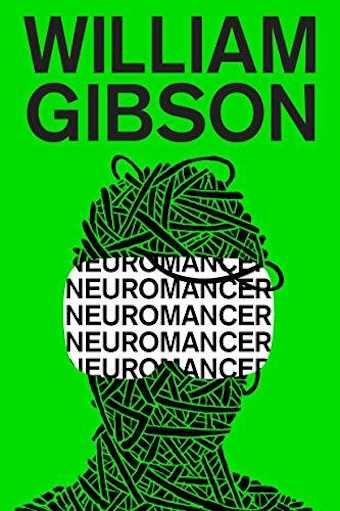
It’s a little shocking to see how William Gibson basically predicted our entire digital world back in 1984 with “Neuromancer”. Us sitting here with our smartphones is basically like holding a deck that Case would recognize.
Neuromancer didn’t just create the cyberpunk subgenre, it gave us the early vocabulary we use to discuss our digital age.
Cyberspace? That was Gibson. The aesthetic of the digital world being this tangible, neon-lit space? That was Gibson again. Going back to Neuromance now makes some parts feel less like science fiction and more like a slightly stylized version of our current reality.
When you really think about it, it’s wild how the book predicted so many modern tech concepts. Reading about “someone jacking into the matrix of Neuromancer” is an easy parallel to VR headsets and the metaverse. Gibson saw where we were heading long before most of us even had home computers.
Best Books of All Time #20 – The Handmaid’s Tale by Margaret Atwood
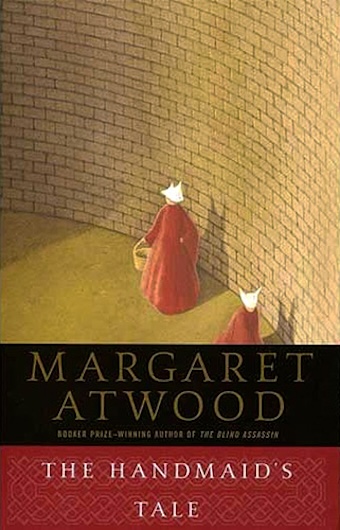
I’ve read a lot of dystopian fiction, but there will always be something special about ”The Handmaid’s Tale”.
Atwood wrote more than just a cautionary tale, she created a mirror that reflects some uncomfortable truths about our society. What made it truly revolutionary is how it takes real historical examples of oppression and weaves them into a future that feels terrifyingly possible.
The genius of this book (and trust me, I’ve read it multiple times) is how Atwood grounds everything in reality. Every horrific aspect of Gilead has happened somewhere at some point in human history. That’s what makes it so powerful…but also so scary.
Atwood has this ability to handle first-person narratives that creates this claustrophobic feeling of being trapped while looking at things from Offred’s perspective. Truly masterful writing.
Best Books of All Time #21 – The Name of the Wind by Patrick Rothfuss
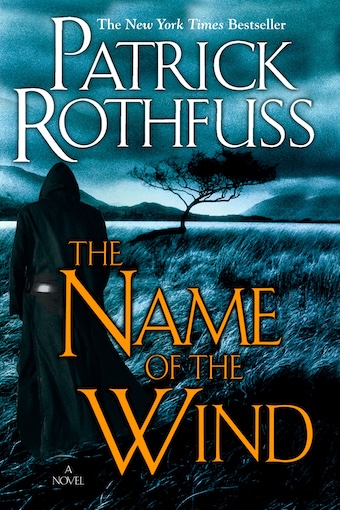
When I first read Patrick Rothfuss’ “The Name of the Wing” I was blown away by the sheer eloquence of the prose. After reading A Game of Thrones, I couldn’t believe fantasy could be written like that. I thought it was a work that was completely unique…until I found Kvothe and the world of arcanists.
Rothfuss was able to give us a ‘story within a story’ that is something truly unique and not something I’d encountered much before. Add to that the way he combines poetic language with hard magic systems, it’s one of those books that stands out. It leaves you eager to keep reading to find out what happens next.
The sympathy magic system is probably one of the most well-thought-out magical concepts I’ve encountered. It follows actual scientific principles while still feeling magical which is not easy to pull off. Brandon Sanderson was able to do this with his Mistborn series but the way Rothfuss approaches it just feels more…real.
And don’t get me started on the way he handles the frame of narrative. The whole “unreliable narrator” thing hits differently when your protagonist is literally telling his own story at a bar. So how much of it is embellished?
Though between this and ASOIAF, I’m starting to develop trust issues with unfinished series. But that doesn’t mean The Name of the Wind is any less spectacular. It shows us it’s possible to tell a great and compelling story with incredible depth, prose, and characters.
Best Books of All Time #22 – Childhood’s End by Arthur C. Clarke
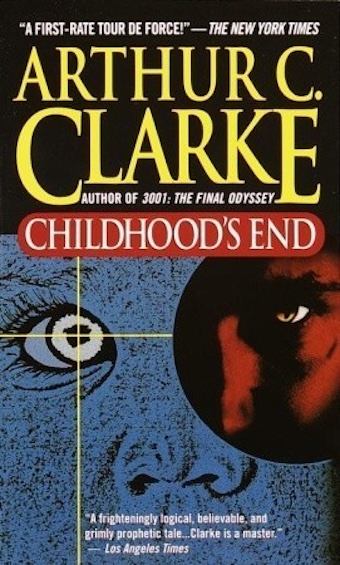
Arthur C. Clarke’s “Childhood’s End” had such a revolutionary impact on how we think about aliens and their contact with humans in fiction.
Before this book, aliens were mostly written as invaders or friendly visitors. Clarke said, “Hold my tea” and gave us something way more complex, balancing both hard science with the bigger philosophical questions.
The way Clarke portrays the “Overlords” and their impact on human society raised a lot of great questions. Some of which still feel relevant today. It’s easy to think back to this book every time we hear about a new scientific discovery in space or about consciousness.
You can easily see the influence this book had on many modern sci-fi works. Viewing aliens as truly alien, not just versions of humans who look different, was all Clarke’s impact. And (no spoilers) the ending is something that still gives me chills every time I think about it.
Best Books of All Time #23 – Snow Crash by Neal Stephenson
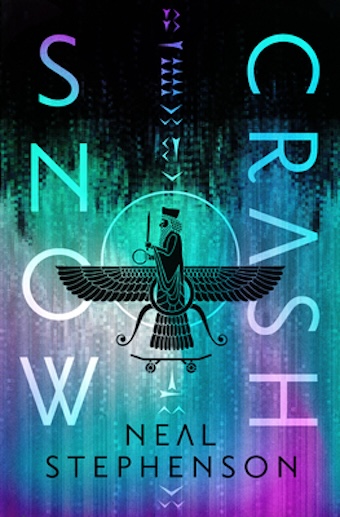
Every time we use a VR headset or hop into an online game, it’s so easy to think about ”Snow Crash” and its impact since being published in 1992.
Stephenson expanded on the digital age blueprint William Gibson started in 1984 with Neuromancer, making it feel more modern and real. The social media company Meta is quite literally copying “The Metaverse” from this novel!
This book is able to blend ancient mythology with cutting-edge technological concepts. Who else would think to connect Sumerian mythology with computer viruses? Stephenson not only pulled this off, he did it in a way that felt so natural. He also touched on and predicted things like MMORPGs, virtual real estate, and avatar-based social interaction. So it’s easy to wonder if he predicted these things OR if the people who created them were influenced by his works? I lean more towards the latter.
I remember being blown away by Hiro Protagonist (yes, that really is his name) and his sword-fighting skills both in and out of the Metaverse. The book also has a way to make pizza delivery feel like high stakes espionage, and I’m all for it. Every techno-thriller written since owes a great debt to how Snow Crash balanced advanced technological concepts with pure entertainment.
Best Books of All Time #24 – The Left Hand of Darkness by Ursula K. Le Guin
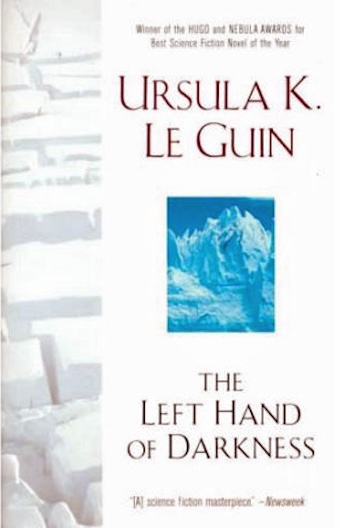
“The Hand of Darkness” is one of those books that completely changes the perception of gender. It’s not just groundbreaking, it’s mind-bending as well.
The way Le Guin writes about gender fluidity has a way of making people rethink gender in our own world. Some of which can still be viewed as radical today. She created the Gethenians who are ambisexual and can shift between both male and female. They perfectly highlight the challenges of understanding who someone is to their core and the barriers this can create.
What really stands out to me is how she uses this concept to explore deeper questions about human nature and society. There is always something more that can be learned about gender perceptions and assumptions with each reread.
The world-building is also just incredible. The way she describes the harsh winter planet of Gethen and how it shapes its society and politics? This is how climate-based world-building should be done. And don’t even get me started on the pronouns thing. Le Guin was tackling these issues decades before pronouns became what it is today.
Best Books of All Time #25 – American Gods by Neil Gaiman
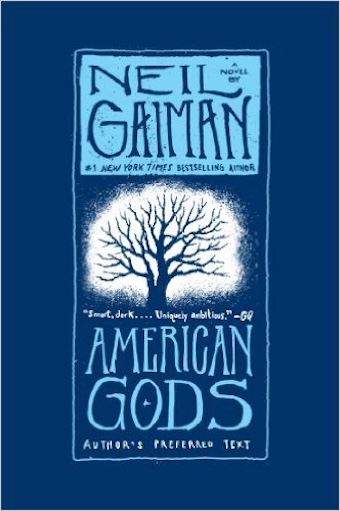
”American Gods” is one of those books that makes you look at the world differently. Like, imagine if every roadside attraction had some sort of ancient deity hanging out there.
Gaiman took the concept of “gods walk among us” and turned it into something uniquely American. What’s really incredible is how he wove together ancient mythologies with modern culture. How he portrays the old gods trying to survive in a world where new gods of media and technology are being created? That’s just a brilliant social commentary on our current world.
The structure of the novels through road trips is also pure genius. It allows Gaiman to explore the weird, hidden corners of America while fleshing out this incredible adventure. And, I have to say, Shadow Moon might be one of the most compelling “every man” characters I’ve come across in fantasy.
Since this was published, I’ve seen many urban fantasy writers looking for the right formula to capture the same magic. Making the mysterious feel mundane and the mundane feel mysterious.
Best Books of All Time #26 – Hyperion by Dan Simmons
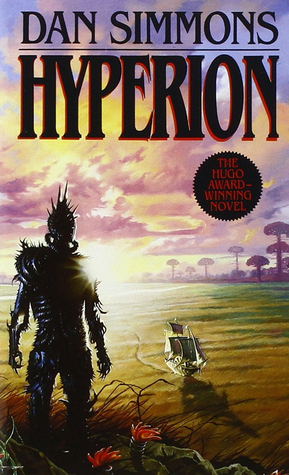
Okay, so imagine Canterbury Tales, but in space, with killer robots and time travel. That’s “Hyperion” in a nutshell, but it doesn’t even begin to capture the magic behind this book.
The structure of this book looks at each pilgrim’s tale, adding in more layers of information to the narrative. Even though it’s already very complex, Simmons is somehow able to make it all work.
The Shrike is absolutely terrifying. It gives me chills every time I read about it. But what really gets me is how each story hits differently, giving you a little big of everything. You’ve got horror, romance, military sci-fi, a detective story, and somehow they all fit together perfectly. It’s like Simmons was actively looking to master every sci-fi subgenre at once.
The way the book handles time, memory, and AI is just so well done. And the Tree of Pain? That image is permanently seared into my brain. Modern sci-fi series like Book of the New Sun or The Three-Body Problem owe a lot to Hyperion. It showed us that science fiction could be both complex and accessible.
Best Books of All Time #27 – The Earthsea Trilogy by Ursula K. Le Guin
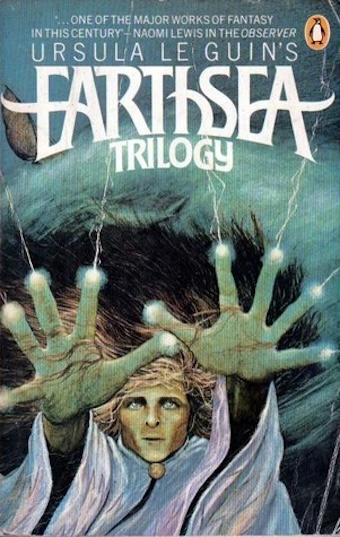
You know how every fantasy novel now has some sort of complicated magic system with rules and consequences? Ursula K. Le Guin deserves some credit for that.
The way magic works in “The Earthsea Trilogy” has had tremendous influence over many magic systems that came after. Knowing something’s true name gives you power over it is a trope I’ve seen a number of times since.
What really strikes me about Earthsea is how it treats magic with such respect and gravity. None of that flashy fireball-throwing stuff here. Le Guin created a world where magic is about balance and responsibility, and the consequences feel real.
What’s striking about Ged’s journey is how different it felt from a typical “chosen one” narrative. She handled young adult themes in a way that doesn’t talk down to her readers.This series proved it’s possible to write a complex, philosophical fantasy that appeals to both adults and younger readers alike. So when you see a YA fantasy dealing with serious themes, The Earthsea Trilogy paved the way.
What makes all these books revolutionary is more than just their innovative ideas or beautiful writing. It’s how they changed our expectations of what to expect with fiction novels.
Each one pushed new boundaries and asked hard questions, opening up new possibilities for all authors who came after them. Whether it’s Dune’s environmental warnings, Tolkien’s exploration of industrialization vs. nature, Foundation’s examination of social science, or Martin’s deconstruction of fantasy tropes. Each of these books helped change and shape science fiction and fantasy in their own way.
